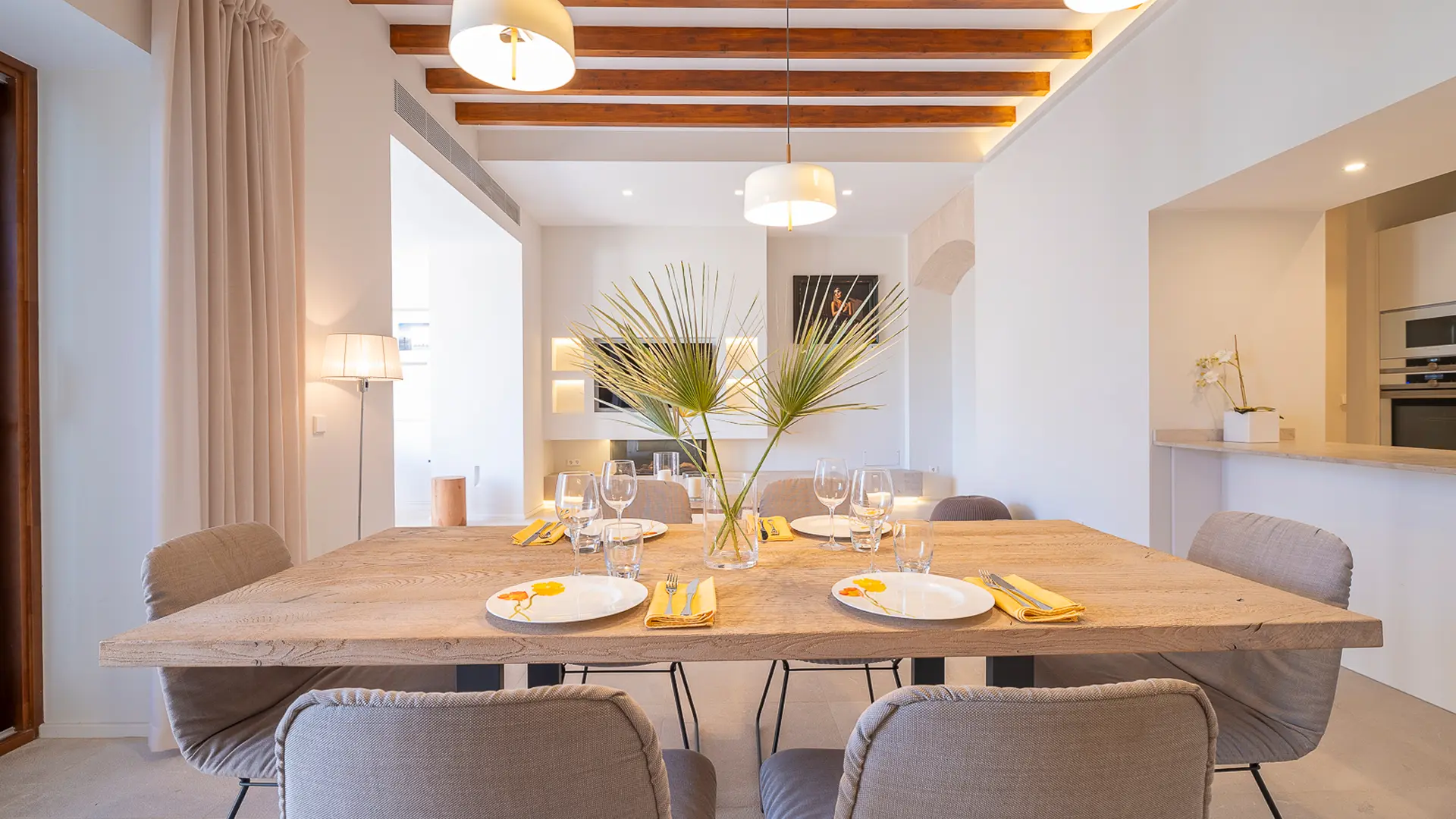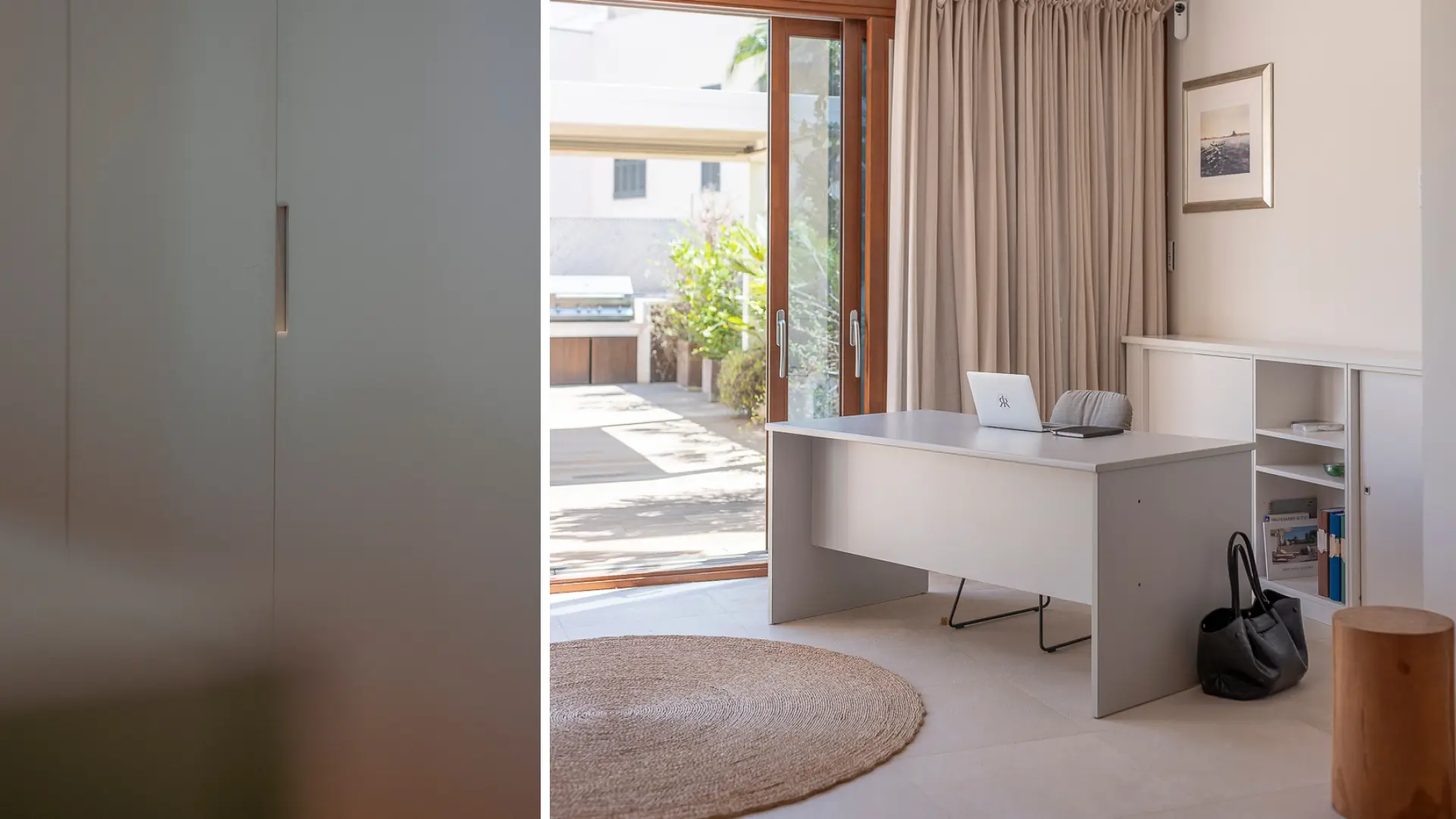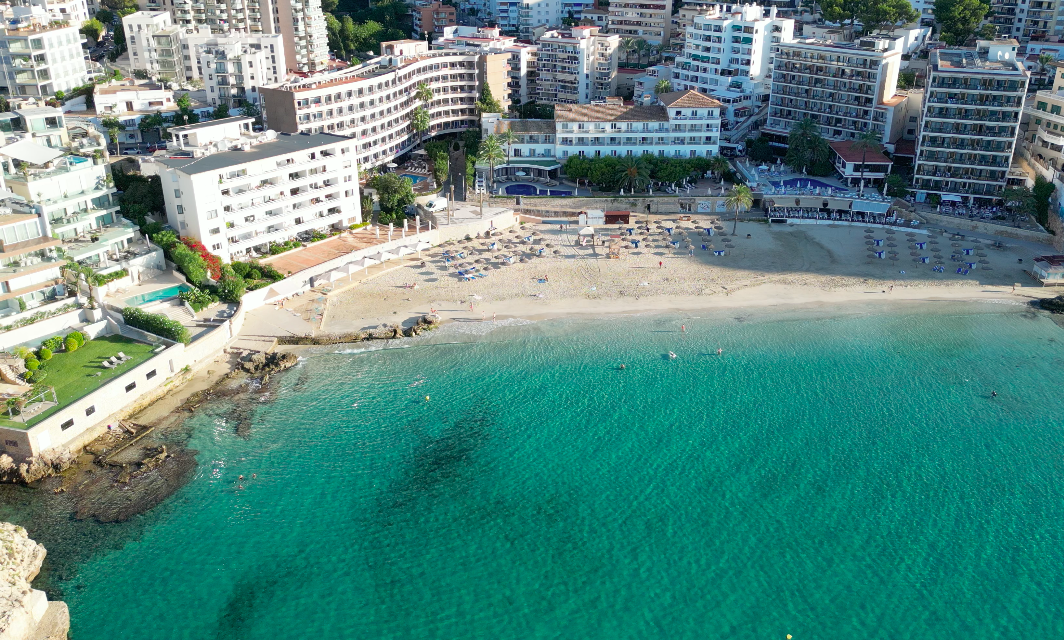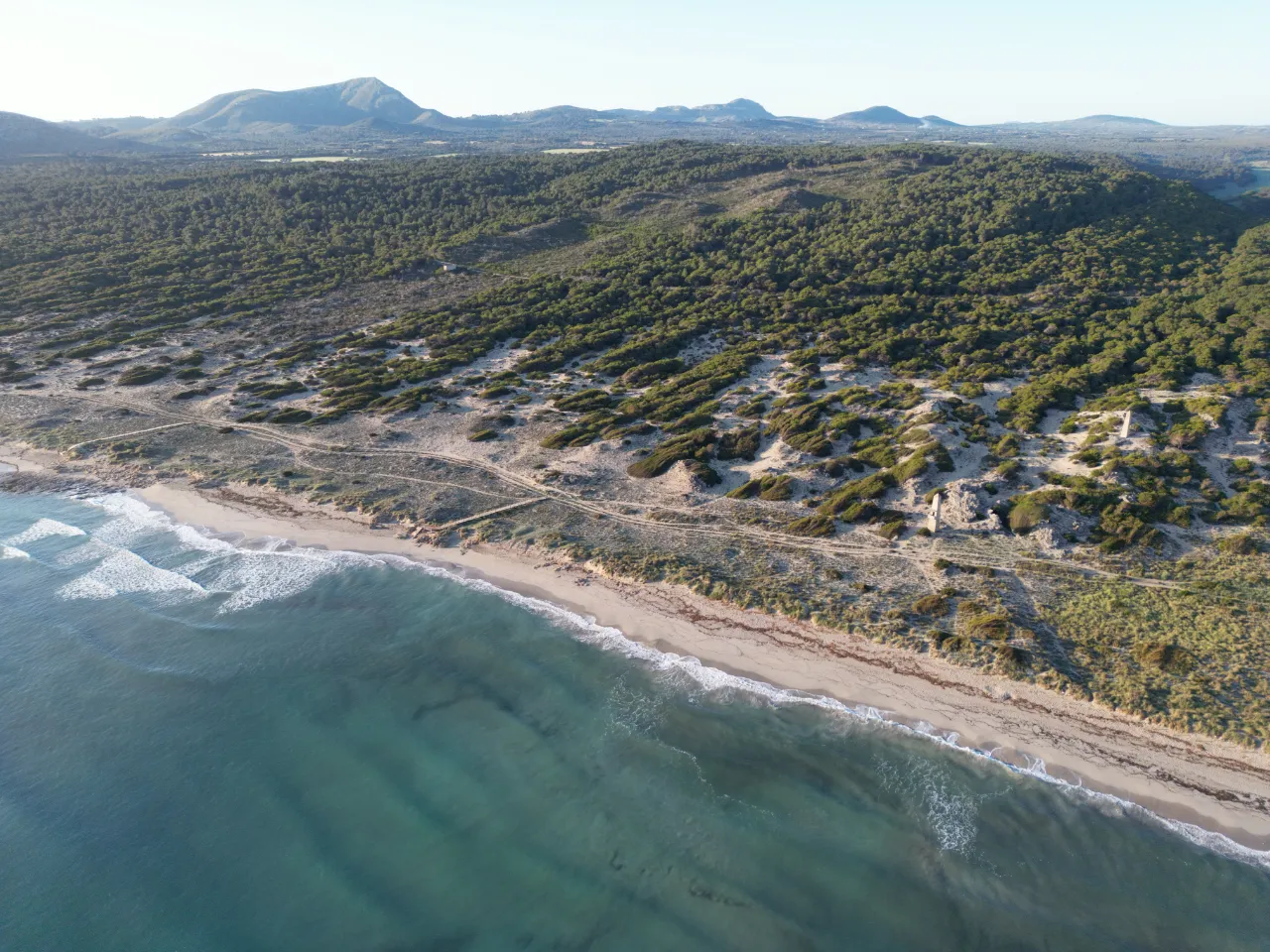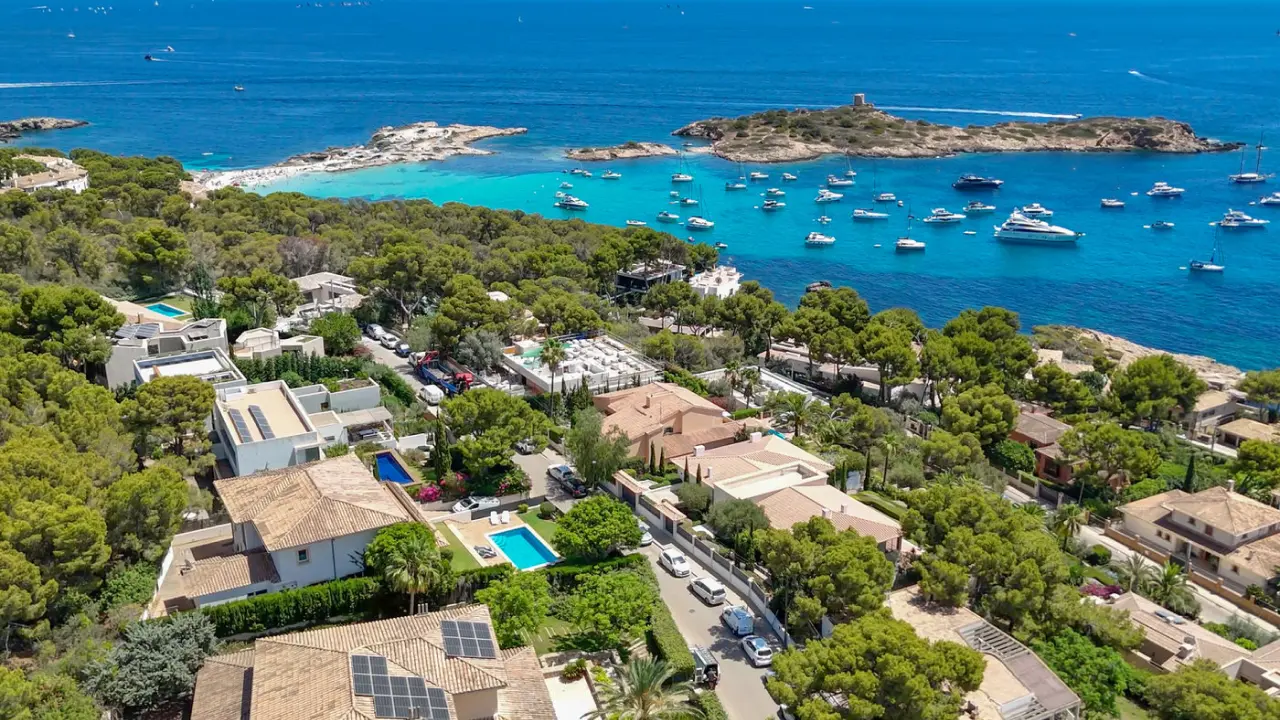Buying a property in Spain with cash can give you a strong edge as a buyer. It often allows for quicker transactions, greater negotiation power, and fewer complications compared to getting a mortgage. However, “buying with cash” in this context doesn’t mean showing up with bags containing physical banknotes.
In Spain, most cash transactions are carried out via bank transfers, not actual physical cash. What this really means is buying a property without financing or a mortgage.
Still, even without a loan, there are legal obligations, financial limits, and procedural steps you must follow. In this guide, we outline the most important factors to keep in mind before buying a property in Spain (or Mallorca) with cash to ensure your purchase is secure, compliant, and risk-free.
Can You Buy Property in Spain With Cash?
Yes, you can purchase property in Spain without a mortgage or financing. This is known as a cash purchase. However, most payments must be made by bank transfer, not with physical banknotes, as this can risk you getting into some problems with government institutions, resulting in hefty fines (if they find out, of course). Also, you must follow Spain’s legal and financial rules.
Buying a new build vs a resale property, what’s better?
Legal & Tax Implications for Buying Property With Cash
When buying a property with cash in Spain, both the buyer and seller must follow legal requirements and fulfill tax obligations. These measures are designed to prevent tax fraud, enforce transparency, and confirm rightful ownership.
Below is a table outlining the main responsibilities for each party:
|
Legal/Tax Item |
Buyer | Seller |
|---|---|---|
| Cash Limit Rules | Max €1,000 or €10,000 (non-resident) | Same limits apply |
| Proving Source of Funds | Must show documents | Must cooperate |
| NIE Requirement | Must obtain before purchase | N/A |
| Transfer Tax / VAT | Pays ITP or VAT | N/A |
| Notary & Registry Fees | Pays main costs | May cover minor costs |
| Capital Gains / Plusvalía Tax | N/A | Must declare and pay |
| Outstanding Property Debts | Takes on unpaid fees if not cleared | Should clear all debts |
| Property Registration | Must register as owner | N/A |
| Illegal Cash Sanctions | 25% fine if over legal limit | Same penalty risk |
The 12 Points to Consider Before Buying With Cash
Even without a mortgage, buying a home in Spain still requires following local laws, proving the source of your funds, and working with legal professionals to ensure everything is in order, including opening a Spanish bank account. These 12 essential points will help you stay compliant, avoid penalties, and protect your investment.
Step inside this elegant 3-bed apartment for sale in Santa Maria ⇒
1. Buying Property in Spain With Physical Cash
According to the Agencia Tributaria (Spain’s tax authority), violating the cash payment limits is considered a serious administrative offense. This applies to both the person paying and the one receiving the cash.
If a payment of €1,000 or more (or €10,000 for non-resident individuals not acting as business owners) is made in physical cash, both parties are held jointly liable and can be fined 25% of the total cash amount used. This sanction can be reduced by 50% if certain conditions are met.
Only the first party to report the illegal payment to the tax agency, within three months of the transaction, is exempt from penalties. The report must include the amount paid and the identity of the other party. If both parties report it, neither is exempt.
The violation itself and any resulting fines each have a five-year statute of limitations.
Fun Fact: These cash limits apply to all transactions in Spain, not just real estate. So technically, you’re not even allowed to legally pay for a laptop or a new fridge in cash if it costs more than €1,000!
2. Proving Where Your Funds Came From
Spain enforces strict anti-money laundering rules under Law 10/2010. As a cash buyer, you must provide proof of where your funds originated. This might include:
- Certified bank statements
- Proof of salary or inheritance
- Sale of previous property or assets
Notaries, real estate agents, and banks are legally obligated to report suspicious transactions. Having your paperwork in order avoids unnecessary delays or blocks in the transaction.
3. You Still Need an NIE Number
Foreign buyers must obtain an NIE (Número de Identificación de Extranjero). This is a personal identification number used for all tax and property-related activities in Spain.
You’ll need it to pay transfer tax, sign contracts, and register the property. Apply early through the Spanish consulate or in Spain, as it may take a few weeks to issue.
4. Engage a Qualified Lawyer
While not legally required, having a qualified and independent real estate lawyer is one of the most important steps you can take in purchasing a new home. Spanish property laws and contracts may be unfamiliar or written only in Spanish.
Your lawyer will carry out due diligence, ensure there are no legal issues tied to the property, and protect your interests throughout the purchase.
5. Hire a Notary to Finalize the Sale
A notary (notario) is a neutral legal official required to validate property transactions in Spain. Their role includes confirming the identity of parties, verifying the legality of the transaction, and ensuring that taxes are paid.
However, they do not represent your personal interests. They will not verify whether the property is debt-free or if permits are in order — that’s your lawyer’s job. Which is why it is always a good idea to have a trusted real estate agent do this all for you.
6. Register the Property at the Land Registry
After signing the purchase deed (escritura) before the notary, the property must be registered with the Registro de la Propiedad. Registration is the legal act that secures your ownership rights.
Without registration, you won’t be officially recognized as the owner, and you risk complications in the future, especially if you plan to sell or pass the property on.
7. Check the Property Is Free of Debts
In Spain, debts associated with a property (such as unpaid taxes, community fees, or mortgages) stay with the property, not the previous owner.
Before buying, you (or your real estate agent) should always request a Nota Simple from the Property Registry. This document shows:
- Current owner
- Mortgages or encumbrances
- Outstanding debts or liens
Skipping this step can mean inheriting someone else’s financial problems.
8. Confirm Urbanistic Compliance and Permits
Urbanistic compliance means the property must meet local planning and building regulations. Illegal constructions or unlicensed modifications can result in hefty fines or even demolition.
Before buying, ensure the property has:
- Valid building permits
- First Occupation License (for newer properties)
- No pending legal disputes with town planning authorities
Ask your lawyer to investigate these during the due diligence phase.
9. Understand All Taxes and Fees
Buying a property in Spain involves several one-time fees and taxes that can significantly increase your total cost. Common charges include:
| Type of Cost | Typical Rate |
|---|---|
| Property Transfer Tax (ITP) | 8% – 13% (resale homes) |
| Stamp Duty (AJD) | 1% – 2% (new builds) |
| Notary Fees | €600 – €1,000+ |
| Registry Fees | €400 – €1,000+ |
| Legal Fees | 1% of purchase price (approx.) |
Always budget an additional 10% to 15% on top of the property price to cover all taxes and legal costs.
10. Handle Currency Exchange and Transfers Carefully
If you’re transferring money from abroad, be aware of:
- Currency fluctuations that could affect your buying power
- Bank fees that can add up fast
- Transfer timeframes for large sums
Specialist currency exchange providers often offer better rates than banks and can help you lock in a favorable rate with forward contracts or limit orders.
Also, if you bring more than €10,000 in physical cash into Spain, you are legally required to declare it to Spanish customs.
11. Budget for Ongoing Costs
Owning a new property in Spain for the first time comes with recurring expenses. Make sure to factor these into your budget, as the total amount of these expenses can vary:
- IBI (Impuesto sobre Bienes Inmuebles): An annual property tax paid to the local council
- Community fees: If you buy an apartment or a home in a shared complex
- Maintenance and insurance: Covering repairs, upkeep, and emergencies
These costs vary by region and property type, so get estimates before you buy.
12. Avoid Common Pitfalls
Many international buyers confuse ‘cash purchase’ with paying in physical cash, when in fact, it means buying without a mortgage. In our experience, cash buyers often gain a negotiating advantage, especially in slower markets, because sellers know the deal is unlikely to fall through.
We’ve also seen how crucial it is to request the Nota Simple before committing. Buyers who skip this risk may inherit debts tied to the property, including unpaid utility bills or taxes. Some buyers, trying to cut corners, have considered “under-the-table” deals to reduce taxes, but these are illegal and often backfire with fines or retroactive tax bills.
Cash buyers can sometimes move too quickly and overlook crucial checks. Avoid these common traps:
- Scams or unverified sellers: Only work with licensed agents and always verify ownership via the land registry.
- Buying off-plan without proper guarantees: Developers must provide bank guarantees for your payments under Spanish law.
- Skipping due diligence: Always have your lawyer check for zoning issues, debts, and permits.
Being cautious and thorough will protect your investment.
Conclusion
Buying a home in Spain with cash offers advantages for property buyers, but also responsibilities compared to other European countries. You need to comply with cash limit laws, prove where your money comes from, pay taxes, and work with professionals who know the mortgage conditions and the Spanish system.
This isn’t just about avoiding problems. Doing things the right way ensures your property is legally yours, protected from claims, and ready for resale or rental.
Plan carefully, ask questions, and don’t cut corners, and you’ll enjoy a smooth experience buying your Spanish dream home.
Property for sale in this article: 3-bedroom apartment in Santa Maria
FAQs
Can foreigners buy property in Spain with cash?
Yes. There are no restrictions. Just make sure to follow legal steps and declare your funds correctly.
How much physical cash can I legally use in a purchase?
Only €1,000 if any party is a professional or business. Up to €10,000 if both parties are private individuals and the buyer is a non-resident.
Do I need a notary and a lawyer?
Yes. The notary is required to formalize the transaction. A lawyer protects your interests during the purchase.
What is the biggest mistake cash buyers make?
Skipping legal checks or not proving the origin of funds, which can delay or block the sale.
How long does it take to buy a property with cash in Spain?
If everything is in order, it can take as little as 4–6 weeks from offer to signing.



